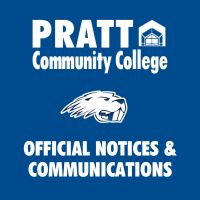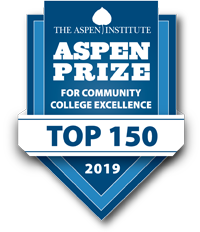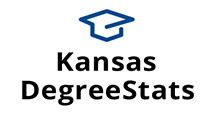Introduction
Use of or access to College computing resources shall be limited to students/College employees for the performance of official college functions and approved assignments only, except in specified areas which are open to the public. Use of College computer equipment or software for commercial applications is prohibited. All computer use is subject to review by the administration.
General Rules
Users of campus computing resources must comply with federal and state laws, campus policies, and the terms of applicable contracts including software licenses while using campus computing resources. Some examples of applicable laws, rules, and policies include;
- the Computer Fraud and Abuse Act
- PCI (Payment Card Industry)
- libel – which includes false statements that are damaging to a person’s reputation
- PII (Personally Identifiable Information)
- Federal Rules of Civil Procedure for e-discovery
- privacy
- copyright
- fair use
- trademark
- Administrative Policy 200-32, Copyright and Fair Use Laws
- Administrative Policy 200-34, Computer and Internet Use
- Administrative Policy 200-35, Employee/Student Work Products
- Administrative Policy 200-26, Harassment and Discrimination
- Administrative Policy 200-51, Institutional Social Media Accounts
Users are responsible for ascertaining what authorizations are necessary and for obtaining them prior to using campus computing resources. Users are responsible for any activity originating from their accounts. Accounts and passwords may not, under any circumstances, be used by persons other than the person that was assigned the account. If unauthorized use is suspected the account owner should change their password and report the incident to the computer center.
Users may be restricted from certain specific uses of computing resources if such use interferes with the efficient operations of the computing systems (i.e. excessive downloading, file sharing, constant online music, constant online weather programs, downloading or installing personal computer programs.)
Security
The normal operation and maintenance of PCC's computing resources requires the backup and caching of data and communications, the logging of activity, the monitoring of general usage patterns, and other such actions as needed to efficiently operate the computing system at PCC. Pratt Community College may also specifically monitor the activity and accounts of individual users of computing resources, including individual login sessions and the content of individual communications, without notice. Information obtained from this activity may be disclosed to appropriate campus personnel, law enforcement agencies, and may result in disciplinary action.
E-Mail
For the purposes of this policy, e-mail includes point-to-point messages, postings to newsgroups and list-serves and any electronic messaging involving computers and computer networks. Employees and students shall have no expectation of privacy when using PCC e-mail or other internal communication systems. E-mail messages are to be used to conduct approved and official business of the College. E-mail messages will be saved by the system for a period up to six months. E-mail is required to be produced by legal process.
Net Work Infrastructure
Users are not to attempt to implement their own network infrastructure. This includes network devices such as hubs, switches, routers, network firewalls, and wireless access points, and personally owned devices, i.e. laptops. Users shall not utilize any alternative methods of access to PCC computing resources, such as modems or VPN's. Users are not to offer network services such as DHCP and DNS. Back-up data will be maintained for a period up to two weeks.
Software
Only software purchased by the College may be permanently loaded onto College computers and must comply with all copyrights and licensing agreements. Proof of purchase must be on file with the computer center.
Internet Use
Pratt Community College encourages the use and application of information technologies to support the instructional mission of the institution. Internet access is provided to support the following objectives:
- To encourage excellence in instruction and learning.
- To support the administrative and instructional support functions of the College and to provide opportunities for communication with outside educational professionals.
- To provide computer users access to information available through the Internet.
The guidelines for computer resources and Internet usage will be prominently displayed in the Linda Hunt Memorial Library, classrooms, and labs having computers for general usage.
Guidelines for Internet, Web Site, and Social Media Usage
The College maintains its Internet, web site, and social media for use to enhance the educational mission of the College. The e-learning community at Pratt Community College is established to provide and encourage the exchange of information and ideas in accordance with certain standards for use.
Pratt Community College in our sole discretion will not allow any use that is obscene, indecent, abusive, harassing illegal or which might otherwise subject the College to public disparagement or scorn. The College reserves the right, without prior notice to users to change usernames, delete posts to our sites, and deny access or any combination of the above listed options. Users are solely responsible for all content they post on our site. Pratt Community College shall have the right, but not the obligation to correct, any errors or omissions in any content, as it may determine in its sole discretion.
No copyrighted or trademarked materials will be posted unless posted by the holder of the copyright or trademark or without the expressed permission of such holder. No user will distribute software, hardware, viruses, spam, licenses, registration information or software keys through any of the PCC sites or forums. No advertisements are allowed to be posted by users except for advertisements for Pratt Community College.
Copyright law
Copyright infringement occurs when you do any of the following: reproduce, distribute, perform, publicly display, or create a derivative work (recasting, transforming or adapting an original copyrighted work) a copyrighted work without the permission of the copyright owner.
When you upload or download works protected by copyright without the permission of the copyright owner, you may be infringing on the copyright owners rights of reproduction and/or distribution. If you are found to have infringed a copyright work, you may be liable for statutory damages up to $30,000 for each work infringed. If the copyright owner can prove willful infringement, you may be liable for up to $150,000 for each work infringed. Your liability may not stop there: you may also be liable for the attorney’s fees the copyright owner incurs to enforce his or her rights.
Files distributed over peer-to-peer networks are primarily copyrighted works. Should you distribute or reproduce (upload or download) them without the permission of the copyright owner, you run the risk of liability. You can avoid these risks by purchasing works through authorized services. There are currently many such sites on the Internet that allows you to purchase copyrighted works online.
EDUCAUSE maintains a list of legal sources of online content at (http://www.educause.edu/legalcontent). Note that there may be some websites that are not listed that offer to sell content. Not all sites that sell content are legal; similarly, free content is not always illegal. These sites may be funded through advertisers or represent artists who wish to distribute their music freely. It is the user’s responsibility to ensure content is legal.
Classroom Guidelines for Computer and Internet Use
Pratt Community College encourages the use and application of information technologies to support the instructional mission of the institution. To ensure the most efficient use of the computer labs, the following guidelines for use apply:
- Open lab hours will be posted and will not be scheduled when a class is in session.
- Computer users will sign in and agree to comply with the classroom guidelines each time they use the labs.
- Only one user will be allowed at each work station.
- No food or drink shall be used at the computer work stations.
- Appropriate classroom behavior is expected at all times.
- Use of classroom and lab computers is limited to educational purposes.
- Printing will be restricted to materials used for educational purposes and charges may apply.
- All equipment is to be properly cared for.
- Copyright laws and licensing agreements for regarding printed materials and or software must be followed. The College accepts no liability for an individual’s failure to comply with copyright and licensing agreements.
- Respect will be shown to all other users in the computer lab.
Enforcement
Users who violate this policy may be denied access to campus computing resources and may be subject to other penalties and disciplinary action, including expulsion, dismissal, or termination. Alleged violations will be handled through the campus disciplinary procedures applicable to the user. A user's access to campus computing resources may be suspended, blocked or restricted in order to protect the integrity, security, or functionality of campus computing resources. Violations may be referred to appropriate law enforcement agencies.
X This replaces policy dated 04-17-2018, 11-21-2017, 12-07-2010, 10-05-2010,
04-25-2007, 04-04-2006, 10-2003





